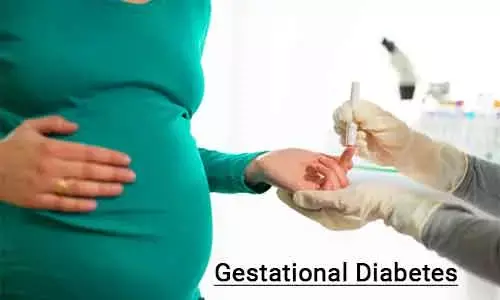- Home
- Medical news & Guidelines
- Anesthesiology
- Cardiology and CTVS
- Critical Care
- Dentistry
- Dermatology
- Diabetes and Endocrinology
- ENT
- Gastroenterology
- Medicine
- Nephrology
- Neurology
- Obstretics-Gynaecology
- Oncology
- Ophthalmology
- Orthopaedics
- Pediatrics-Neonatology
- Psychiatry
- Pulmonology
- Radiology
- Surgery
- Urology
- Laboratory Medicine
- Diet
- Nursing
- Paramedical
- Physiotherapy
- Health news
- Fact Check
- Bone Health Fact Check
- Brain Health Fact Check
- Cancer Related Fact Check
- Child Care Fact Check
- Dental and oral health fact check
- Diabetes and metabolic health fact check
- Diet and Nutrition Fact Check
- Eye and ENT Care Fact Check
- Fitness fact check
- Gut health fact check
- Heart health fact check
- Kidney health fact check
- Medical education fact check
- Men's health fact check
- Respiratory fact check
- Skin and hair care fact check
- Vaccine and Immunization fact check
- Women's health fact check
- AYUSH
- State News
- Andaman and Nicobar Islands
- Andhra Pradesh
- Arunachal Pradesh
- Assam
- Bihar
- Chandigarh
- Chattisgarh
- Dadra and Nagar Haveli
- Daman and Diu
- Delhi
- Goa
- Gujarat
- Haryana
- Himachal Pradesh
- Jammu & Kashmir
- Jharkhand
- Karnataka
- Kerala
- Ladakh
- Lakshadweep
- Madhya Pradesh
- Maharashtra
- Manipur
- Meghalaya
- Mizoram
- Nagaland
- Odisha
- Puducherry
- Punjab
- Rajasthan
- Sikkim
- Tamil Nadu
- Telangana
- Tripura
- Uttar Pradesh
- Uttrakhand
- West Bengal
- Medical Education
- Industry
CGM best at assessing Night time hyperglycemia in Gestational Diabetes: Study

According to recent research published in the Journal of Diabetes Technology & Therapeutics, researchers have found that CGM provides a more comprehensive assessment of nocturnal hyperglycemia than SMBG and could improve targeting of interventions in GDM.
Gestational diabetes mellitus (GDM) management using self-monitoring blood glucose (SMBG) does not normalize pregnancy outcomes. Worldwide, one in 10 pregnancies is associated with diabetes, 90% of which is Gestational diabetes mellitus. Undiagnosed or inadequately treated Gestational diabetes mellitus can lead to significant maternal & fetal complications. Moreover, women with Gestational diabetes mellitus and their off-springs are at increased risk of developing type 2 diabetes later in life.
Hence, Dessi P. Zaharieva and associates from the Chronic Disease Unit, School of Kinesiology & Health Science, Faculty of Health, Muscle Health Research Centre and Physical Activity, York University, Toronto, Ontario, Canada aimed to conduct an observational study to explore if continuous glucose monitoring (CGM) could identify elevated glucose levels not apparent in women with GDM managed using SMBG.
The study included ninety women of mean gestational age weeks 27. A 7-day masked-CGM was performed within 2 weeks of GDM diagnosis, immediately post-GDM education, but before insulin commencement as determined by SMBG. CGM data regarding hyperglycemia, time with health care professionals, treatment, and pregnancy outcome were collected. Comparisons were performed between subjects subsequently commenced on insulin versus those continued with diet and lifestyle measures alone.
The following results were observed-
a. Those prescribed insulin (n = 34) compared with those managed with diet and lifestyle alone (n = 56) had a greater time in hyperglycemia.
b. Of those not prescribed insulin, 61% breached Gestational diabetes mellitus cutoffs between 00:00 and 06:00 h; 20% breached 6.00–00.00 h CGM cutoffs for >10% of the time; and 47% with optimal CGM glucose levels during the daytime spent >10% time in hyperglycemia between 00.00 and 06:00 h.
c. In contrast, SMBG measurements exceeded the clinical targets of <120 mg/dL post dinner in 5.4% and <100 mg/dL fasting in 0% of the subjects.
Hence, the authors concluded that "although CGM provides a more comprehensive assessment of nocturnal hyperglycemia than SMBG and could improve targeting of interventions in GDM, larger studies are needed to define CGM targets better, which once established will inform studies aimed at targeting nocturnal glucose levels."
For further reference:
Dr. Nandita Mohan is a practicing pediatric dentist with more than 5 years of clinical work experience. Along with this, she is equally interested in keeping herself up to date about the latest developments in the field of medicine and dentistry which is the driving force for her to be in association with Medical Dialogues. She also has her name attached with many publications; both national and international. She has pursued her BDS from Rajiv Gandhi University of Health Sciences, Bangalore and later went to enter her dream specialty (MDS) in the Department of Pedodontics and Preventive Dentistry from Pt. B.D. Sharma University of Health Sciences. Through all the years of experience, her core interest in learning something new has never stopped. She can be contacted at editorial@medicaldialogues.in. Contact no. 011-43720751
Dr Kamal Kant Kohli-MBBS, DTCD- a chest specialist with more than 30 years of practice and a flair for writing clinical articles, Dr Kamal Kant Kohli joined Medical Dialogues as a Chief Editor of Medical News. Besides writing articles, as an editor, he proofreads and verifies all the medical content published on Medical Dialogues including those coming from journals, studies,medical conferences,guidelines etc. Email: drkohli@medicaldialogues.in. Contact no. 011-43720751


